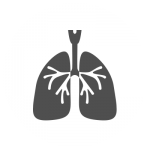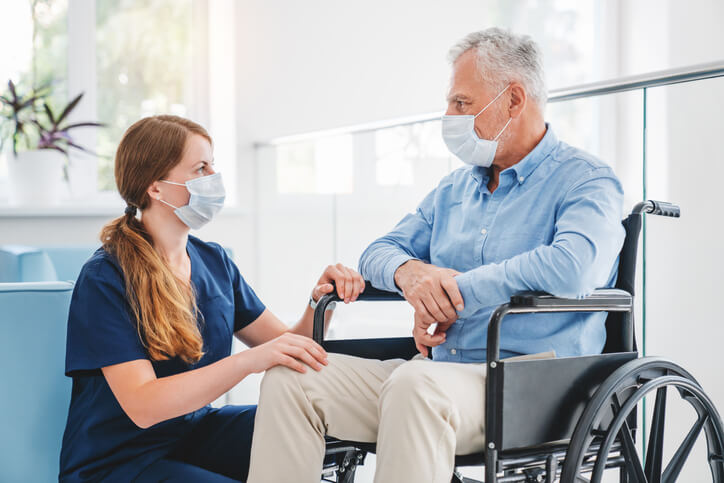Get A Free Legal Consultation
- We fight to maximize your results
- Many clients get results in as few as 90 days
- No out-of-pocket costs for you or your family



Treatment options for malignant mesothelioma include surgery, chemotherapy, radiation and immunotherapy. Mesothelioma specialists might also consider additional treatments, including alternative medicine or clinical trials, though options will vary for each patient.
Sadly, treatment is costly and too often out of reach for many mesothelioma patients and their families. At Simmons Hanly Conroy, our lawyers have fought for thousands of patients, helping them get the compensation they need to afford life-extending treatment.
Call (800) 326-8900 now to see if our mesothelioma lawyers can help your family. It costs nothing to speak with our team, and we have registered nurses on staff if you have questions about care.
Surgical treatment options for mesothelioma patients involve removing all visible tumors. In some more aggressive surgical treatments, the whole affected organ is removed.
Surgery is especially effective when mesothelioma cancer cells have not spread too far throughout the body.

 If your mesothelioma cancer is localized, meaning it’s contained in the lining of the lungs, abdomen or heart, then you may be eligible for more aggressive surgeries.
If your mesothelioma cancer is localized, meaning it’s contained in the lining of the lungs, abdomen or heart, then you may be eligible for more aggressive surgeries.
For example, there are two main surgeries for pleural mesothelioma:
Mesothelioma chemotherapy treatment may be administered in multiple ways. To be applied throughout the body, known as systemic treatment, chemotherapy can be administered orally or intravenously (IV).
For a more localized treatment, doctors may heat chemotherapy drugs and apply them to a specific part of the body to kill any remaining cancer cells after surgery. This is used in the peritoneal mesothelioma treatment procedure known as a cytoreduction with heated intraperitoneal chemotherapy (HIPEC).
Since this treatment disrupts cells during the division and replication process, it may have unpleasant side effects when healthy cells are impacted.
Radiation therapy shrinks tumors and manages excessive growth through high-energy X-rays.
For patients with mesothelioma, radiation is often used in conjunction with chemotherapy and surgical treatments.
There are two types of radiation used to treat pleural mesothelioma — external beam radiation and intraoperative radiation.
Better results are often seen in patients diagnosed with pleural mesothelioma compared to peritoneal patients.
More recently, the U.S. Food and Drug Administration approved immunotherapy to be used as a mainstream treatment option for mesothelioma.
Immunotherapy involves taking immune-boosting drugs that help the patient’s immune system target and fight off new cancer cells as they emerge.
Like chemotherapy, these drugs are administered through an IV and are often part of a multimodal treatment plan.

New treatments for mesothelioma are emerging every year thanks to mesothelioma specialists performing critical research and testing new treatments through clinical trials. Some mesothelioma patients have seen positive results by participating in clinical trials.
Mesothelioma treatments being tested in clinical trials include:
If you need help finding a clinical trial or mesothelioma specialist, contact us today. Our on-staff nurses can answer any questions and connect you with a specialist near you.
While each treatment option has benefits by itself, your mesothelioma specialist may suggest a multimodal approach or an individually tailored treatment plan that includes multiple treatment options, such as surgery, chemotherapy, radiation and other options like immunotherapy.
Mesothelioma treatment plans can be extremely efficient in slowing the spread of the cancer and improving a patient’s life expectancy.
 If the mesothelioma cancer is diagnosed during an early stage and has not yet spread, your specialist may recommend a combination of treatments, such as surgery, chemotherapy and radiation.
If the mesothelioma cancer is diagnosed during an early stage and has not yet spread, your specialist may recommend a combination of treatments, such as surgery, chemotherapy and radiation.
If the mesothelioma cancer has spread, your doctor may recommend palliative treatments for the pain.
Mesothelioma palliative treatment focuses on relieving symptoms and easing pain, instead of working toward curative or life-extending goals.
Palliative treatments can include surgery, chemotherapy, radiation and other treatment options like medications.
Patients who undergo palliative treatment often find their quality of life greatly improved because their symptoms are manageable and less disruptive.

Your mesothelioma specialist will work with you to develop the best treatment plan for you. For this reason, the exact cost of mesothelioma treatment varies and may depend on factors such as the stage of your mesothelioma and your overall health.
However, it is common for treatment to exceed $400,000 annually even with medical insurance.
Thankfully, you may be eligible for mesothelioma compensation which can help you pay for life-extending treatment.
Compensation options may include:
Filing a mesothelioma lawsuit can help cover the costs of treatment. Manufacturers of asbestos products knew of the dangers but continued to put millions at risk of developing serious illnesses.
As a national mesothelioma law firm, Simmons Hanly Conroy fights to hold these asbestos companies accountable while helping victims get the compensation they need to afford treatment.
Our asbestos exposure lawyers have recovered over $10.4 billion for those diagnosed with mesothelioma and their families. Contact us today to see how we can help you.

Mary Hesdorffer of the Mesothelioma Applied Research Foundation shares advice she gives to patients on filing a mesothelioma lawsuit.
Mary Hesdorffer of the Mesothelioma Applied Research Foundation discusses the benefits of working with mesothelioma treatment centers.
Mesothelioma treatment can easily exceed $400,000 annually. Thankfully, Simmons Hanly Conroy is here to help you access the mesothelioma compensation you need to afford critical treatment.
Get a free consultation to see if we can help you get the compensation you need.
There is no cure for mesothelioma at this time. However, thanks to mesothelioma treatment, patients have been able to outlive their life expectancy and spend more time with their loved ones after their diagnosis.
The best treatment options will vary for each mesothelioma patient because each person will have such a unique case. The best way to explore treatment options is to work alongside a mesothelioma specialist.
If you need help finding a specialist near you, contact us. Our on-staff nurses can help answer any questions you may have about treatment options and connect you with a doctor.
Malignant mesothelioma is incredibly aggressive, resulting in a poor prognosis overall. After diagnosis, patients only live 4-12 months without treatment on average.
Treatment, however, may increase life expectancy so people may spend more time with their loved ones.